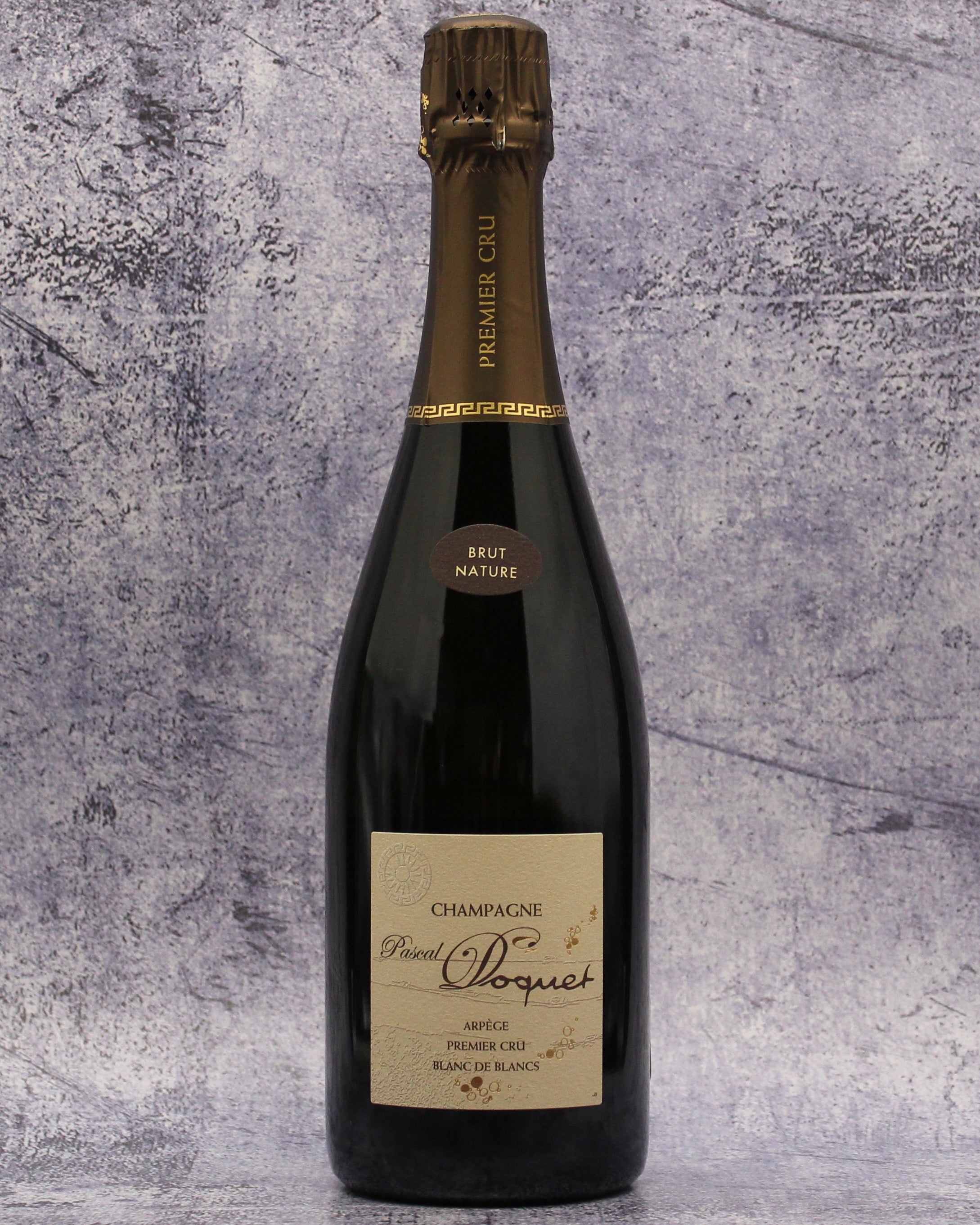Description
From: Côte des Blancs, Champagne, France
Varietal: Chardonnay
Tasting Notes: Because of the substantial amount of reserve wine in the blend, Doquet's 'Arpège' is complex, with a lot of depth. Aromas of spice, black tea, and pear dominate the flinty-silex soils from the Mont Aimé and lend smokiness and depth to the structure. It is beautifully full and dry on the palate.
Pairing: Crispy Rice with Shrimp, Bacon, and Corn by Genevieve Ko has become one of my go-to weeknight dinners, especially since I’ve almost always got leftover rice at home. This recipe has a little bit of everything: salt, fat, and crunch from the bacon; fresh sweetness, acidity, and juiciness from the corn and tomatoes (save this recipe for mid-summer when corn and tomatoes are at their finest, and I promise you’ll thank me); crispy rice and plump, savory shrimp. A perfect accompaniment to your champagne dreams.
About. With holdings of old vines in some of the greatest terroirs in the Côte des Blancs, Pascal Doquet has emerged over the last decade as one of the premier vignerons in Champagne. After he took over his family estate, Doquet-Jeanmaire, in 1995 when his father retired, Pascal established his eponymous Domaine in 2004. Today he farms just under 9 hectares of vines including prime parcels in Vertus, Le Mont Aimé and Le Mesnil-sur-Oger—including his illustrious old vines in the parcel “Champ d’Aoulettes.” Natural farming and dedication to vineyard health is the driving force for Pascal; in fact, he rarely discusses fermentation—his passion is in the vineyards. The Domaine has been certified organic since 2010.
Pascal started with his parents in 1982 and his first vintage was 1995 when he was one of the first members of “lutte raisonnée.” He pushed his environmental concerns with his parents further and stopped all chemical treatments in 2000. Ultimately, the company split in 2004 with his sister taking some parcels and Pascal and Laure taking the rest. One can easily see the difference between the farming influence of Pascal and Laure with a tour of the vineyards compared to the parcels they no longer manage.
Pascal employs extensive cover crops and does his work with a special, ultra-light tractor as to avoid any unnecessary compacting of the soil. Plant-based treatments are employed as Pascal seeks to reduce his use of copper and sulfur as much as possible. He is exceptionally focused on vineyard management in order to express the subtleties of his terroir and to make honest wines. As Pascal often says “It’s the viticulture that makes the difference, not the vinification.”
In this spirit, the harvest is done by hand with strict triage taking place in both the vineyards and the cellar. The grapes are pressed pneumatically and only the best parts of the cuvée are used. The wine is fermented with indigenous yeast, most often in enamel-lined tanks, but neutral oak is used in parts of the vintage Coeur de terroir cuvées. The vin-clair is left on the gross lees for a minimum of five months and receives minimum bâtonage. Almost all of the wines undergo malolactic fermentation and all cuvées are aged for a minimum of three years before disgorgement and release.
The wines of Pascal Doquet burst with energy and verve and deliver mineral-laden, multi-layered expressions of his terroirs. These are wines for people looking to experience the scintillating flavors of the Côte-des-Blancs “sans maquillage.”

